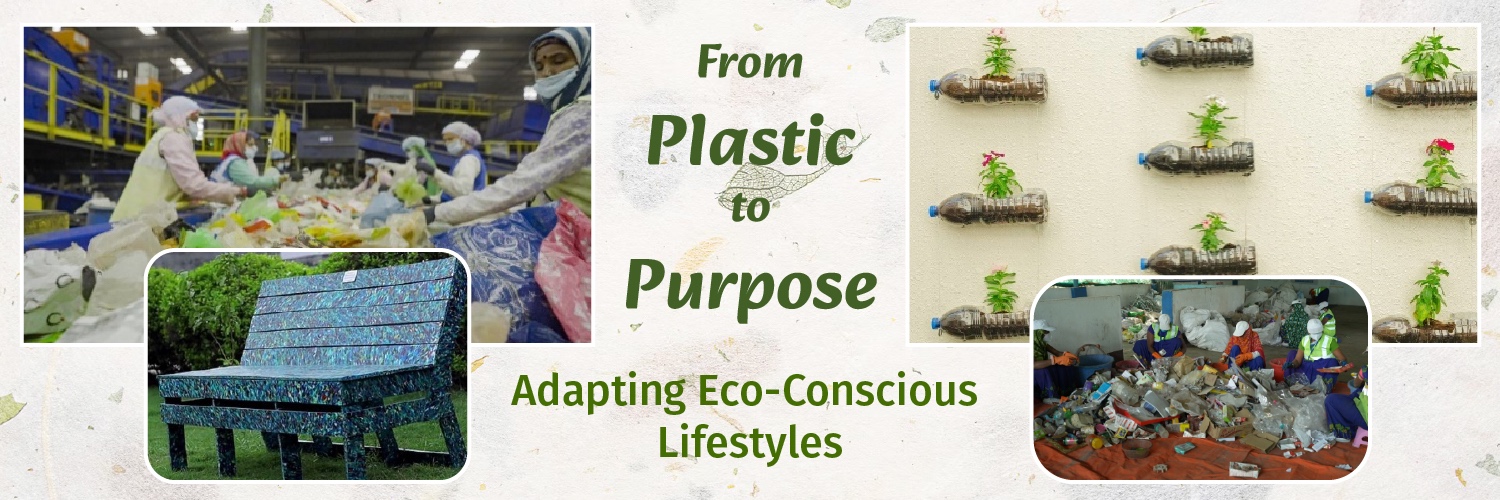
Plastic, once a symbol of convenience, is now a major environmental concern. Under the Swachh Bharat Mission-Urban, cities across India are tackling plastic waste through innovative solutions - recycling, reuse, and recovery under the RRR model - strengthening the circular economy. Urban Local Bodies are combining infrastructure, technology, and citizen engagement to promote sustainable, plastic-free lifestyles. Guided by Swabhav, Swachhata, Sanskar, the Mission is driving grassroots change and supporting India’s Sustainable Development Goals.
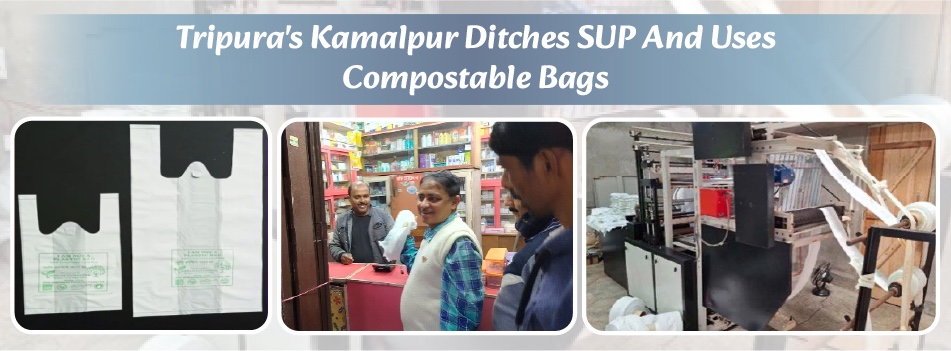
Kamalpur Nagar Panchayat in Tripura has taken a major step toward sustainability by introducing compostable bags made from PBAT, a biodegradable, chemical-free polymer, as a sustainable alternative to single-use plastic. Certified by CIPET for meeting compostability and bio-degradability standards, these eco-friendly bags decompose within 180 days, offering a practical alternative to conventional plastics that can take centuries to break down. Priced at ₹145/kg wholesale and ₹160/kg retail, they are both affordable and accessible. They are also actively engaging with the community to promote the use of compostable bags, reduce plastic pollution, and encourage responsible waste management for a sustainable future.
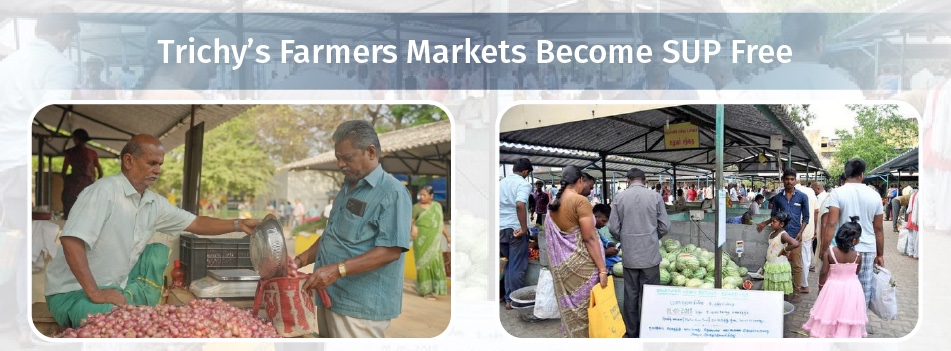
To tackle persistent Single-Use Plastic (SUP) use in markets despite the ban, Trichy City Corporation, with GIZ India’s Circular Waste Solutions project, launched a targeted campaign in 2022. Specific farmer markets in Tennur, K.K. Nagar, and Woraiyur, covering 220 vendors, were chosen for intensive engagement. Vendors were educated on the environmental harm caused by SUPs and encouraged to adopt sustainable alternatives. The "Thunippai Thiruvizhai" initiative further promoted reusable cloth bags among shoppers. The Tennur farmers market avoided 2,200 kg of SUPs in a year, KK Nagar 620 kg in four months, and Woraiyur 300 kg in six months.
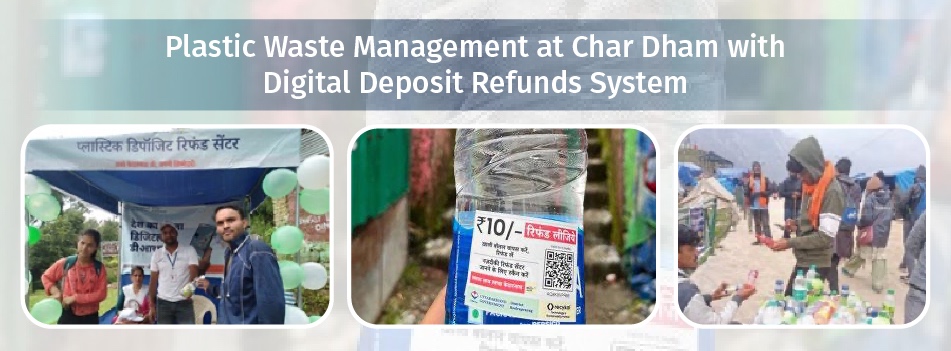
The Digital Deposit Refund System (DRS), launched in Kedarnath in May 2022, tackles plastic waste in the Char Dham region by promoting responsible disposal through financial incentives. Shoppers pay a refundable ₹10 deposit on plastic bottles and multilayered plastics (MLPs), tracked via QR codes distributed to registered shops. Used packaging is returned at designated points or Reverse Vending Machines (RVMs), collected systematically, and sent to Material Recovery Facilities (MRFs) for recycling. Expanded to Gangotri, Yamunotri, and Badrinath, the initiative has recycled 20 lakh plastic bottles, prevented 66 MTs of CO₂ emissions, created over 110 jobs, and boosted informal waste workers' earnings by 37.5%.
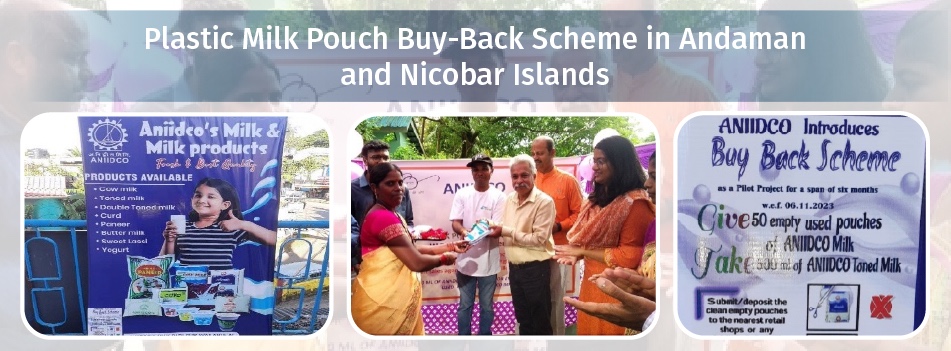
To tackle rising plastic waste, a buy-back initiative was launched to encourage the return of used plastic milk pouches in the Andaman and Nicobar Islands. In collaboration with ANIIDCO and SVPMC, collection points were set up where consumers could exchange used pouches for rewards like fresh milk or discounts. Public awareness campaigns promoted recycling and responsible waste disposal, fostering a culture of sustainability. Community participation was strengthened, fostering long-term environmental awareness and grassroots sustainable practices. The structured buy-back system also generated revenue from recycled materials while offering economic incentives for responsible waste management. By Nov 2024, 17,600 milk pouches were collected, rewarding residents with 352 liters of milk.
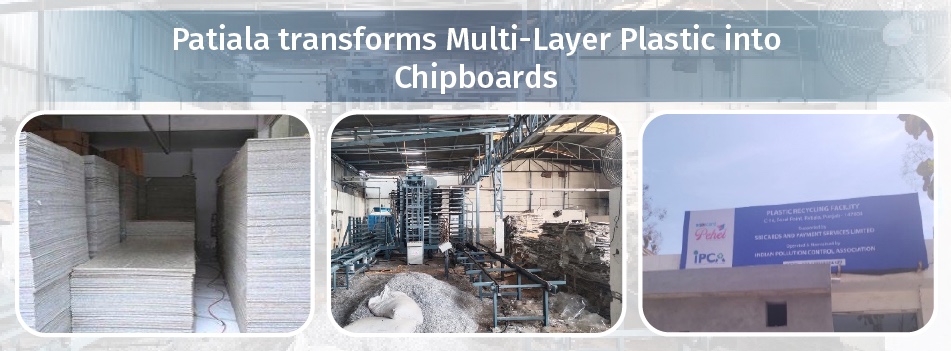
The Plastic Recycling Facility (PRF) in Patiala, set up under CSR, addresses low-value plastic waste by converting multilayered plastics (MLP) into durable chipboards through a hot and cold pressing technology. These chipboards, an eco-friendly alternative to plywood, are used in furniture, roofing, and temporary shelters. The recycling process involves sorting, cleaning, shredding MLP waste into flakes, which are bonded to form cohesive, water- and termite-resistant boards. With a daily processing capacity of 10 tonnes, the facility produces 75 to 100 chipboards, contributing to infrastructure and industrial projects. This initiative supports a circular economy by reducing landfill waste and promoting resource efficiency.
India’s plastic waste management is becoming a collaborative, multi-stakeholder effort. States, cities, startups, and citizens are driving scalable solutions, shifting to sustainable practices, and strengthening recycling to support a circular economy.
For regular updates, please follow the Swachh Bharat Mission’s official website and social media properties:
Website: https://sbmurban.org/
Facebook : Swachh Bharat Mission - Urban | Twitter: @SwachhBharatGov
Instagram: sbm_urban | Youtube: Swachh Bharat Urban | LinkedIn: swachh-bharat-urban